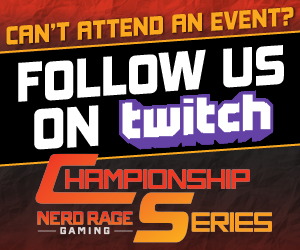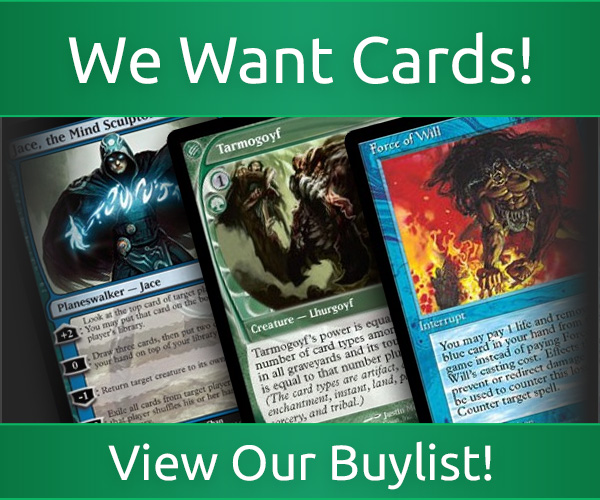Max Kahn: Passing Judgment
So, you wanna be a judge?
Judges are the backbone of every Magic tournament, and are not only responsible for making sure the rules are enforced, but ensuring a fun and safe play experience for all players. I get questions from people who demonstrate interest in judging all the time, so hopefully this article will address the most common questions I get about judging and how you can become involved in the judge program.
Judge Program Structure:
There are three levels of certified judges: Level One, Two, and Three. As a judge’s level increases, they tend to have more responsibilities in the program.
Level One judges comprise around 80 percent of the program, and are going to be the judges that most players at local stores interact with. These judges have passed an interview and rules exam, and are mostly responsible for judging in-store events at Regular REL, such as prerelease, Friday Night Magic, and Game Day.
Level Two judges are certified to run Competitive REL events, including PPTQs, Nerd Rage Gaming Championship Trials, Grand Prix, and SCG Opens. Most floor judges that you see at larger events are Level Two, since they have a deep knowledge of Magic’s Infraction Procedure Guide, a document used to determine infractions and their appropriate fixes at Competitive REL events. Level Two judges are also responsible for the mentorship and testing of new Level One candidates.
The current highest level in the Judge Program is Level Three, also known as “Premier Level.” These select judges are leaders in the judge program because of their expertise in rules, policy, community-building, and mentorship. In order to certify for Level Three, judges need to pass the Level Three Exam, pass a pre-event interview and panel interview, receive recommendations from other Level Three judges, and much more. Among Level Threes, certain judges have advanced roles, such as Program Coordinators, Grand Prix Head Judges, or Regional Coordinators. Due to the intense requirements and commitment these judges must have to the program, only approximately 150 judges out of around 7,400 in the program are Level Three.
What do Judges Do at Events?
Well, one of the obvious tasks that judges are responsible for is giving rulings to players that call for a judge at events. Judges at your local Friday Night Magic or prerelease events are also often employees of the shop, so they have to be attentive to those needs as well as the event’s. Judges at CT Events or other Competitive REL events often dedicate the entire day or weekend to making sure the events run smoothly and by the books. At these events, you’ll see judges doing various things throughout the tournament: giving rulings, completing deck checks, working with the coverage team to provide a good experience for viewers, picking up trash and pushing in chairs, and working with the Tournament Organizer to complete other necessary tasks.

The team of Judges from Chicago’s spring SCG Regional.
Why Should You Become a Judge?
There are a lot of reasons that people want to become a judge. Some of my primary reasons for becoming a judge included wanting to become more involved in the Magic community and having a certification to back my rulings given at local FNM and prereleases. In order to find out more, I asked some other Chicago-based judges to find out the reasons why they certified and what they think are reasons that other judges certify.
“Originally, I wanted a way to stay involved with Magic during metas in which I wasn’t particularly interested in playing, and to help subsidize this expensive hobby. I also figured it would be good to have on my resume should I ever apply to work for an LGS.
After certifying, I found that I enjoyed helping players understand the rules more than I expected to, and that running tournaments where everyone could have a good time was a skill. I was drawn to the logistical challenges of coordinating big prereleases and what makes premier events tick.
Now, I still enjoy all those aspects of the role and more. Since the formation of the Central Region, I’ve been able to get in on the ground floor of this great community and put my refined trolling and criminal amount of time spent online to a productive purpose. I’ve helped my LGS become a thriving training ground for judges, I’ve contributed to NRG’s exciting rise to a premier TO, and I’ve joined the board of a charity aiming to hold blockbuster Magic events for great causes. I’ve already gotten more out of this program than I ever expected, and I look forward to giving beyond that.” – Nick Gajary (L2)
“Like many judges, I was one of the more experienced players at the local shops I played at, and so people tended to want me to weigh in on rules interactions and the like. Plus, my main local store had its judge leave and I figured it could use the help.
I figure most motivations to become a judge are fine as long as they are not taken to extremes. There’s nothing wrong with becoming a judge because you want foils. There’s something wrong with wanting a judge so you can be in a better position to swipe foils from a store, or to cheat little kids out of them. There’s nothing wrong with wanting to improve and show-off your rules knowledge. There’s something wrong with wanting to be like, “It works that way, because I’m a L1 and I say so!” I think as long as there’s a reasonable balance between customer service and self-interest, sure. If you are primarily interested in foils or making money, working pretty much any side job would be better for you. You would on average be able to make money more quickly at a job and buy cards/boxes off of eBay than you would be able to develop the skills to become a L1, develop the experience to get staffed on medium to large events with respectable pay and so forth.” – Raoul Mowatt (L2)
Besides the community aspects of being a judge, there are tangible reasons to want to judge, too. While its extremely difficult to be a “full-time judge”, many judges use judging as a way to pay for their Magic hobby or just as a way to supplement their income. Judges do get compensated for running events, and that’s a valid reason to want to judge. Judges at large events do get paid in cash, but at in-store events, they generally get paid in store credit. Some tournament organizers, such as Nerd Rage Gaming, have a rewards program that helps to support their local judge communities. Judges also receive judge promos for doing exemplary work in the community or attending judge conferences.

How Do You Become A Judge?
The first step towards becoming a judge is knowing Magic! Becoming a judge requires quite a good bit of Magic knowledge, so knowing the ins and outs of Standard Magic is important. Then, contact a local Level Two judge, and ask them to help guide you through the process of certifying for Level One. These are the requirements for certifying are as follows:
– Judge two sanctioned events: For this requirement, helping out at your local store’s FNM counts, even if you’re not the only judge. Just ask the tournament organizer to put your DCI# in under ‘Judges’ in the tournament software.
– Interview and Recommendation from L2 or L3 judge: This normally takes place on the same day as you take the exam with the same judge who is administering the exam. Speaking of…
– A passing score on the L1 Exam. The L1 Exam is 25 questions long, and incorporates the Comprehensive Rules, the Magic Tournament Rules, and the Judging at Regular documents.
– Agree to follow the Judge Code of Conduct: This document is available here.
If you need help finding a local Level Two judge to contact, you can contact the Regional Coordinator for your region here.
Besides that, there isn’t much else to say. I encourage everyone interested in judging to contact a local Level Two, even if you’re not 100% sure that you want to become certified. If you have any other questions regarding the judge program or judging, feel free to reach out to me on Twitter @MaxPlaysMTG. Until next time!
Max Kahn is the Event Manager for the Nerd Rage Gaming Championship Series and the Judge Manager for all Nerd Rage Gaming events. When he’s not answering your judge calls or working behind the scenes at your local event, he splits his time between Chicago, Seattle, and Twitter.



